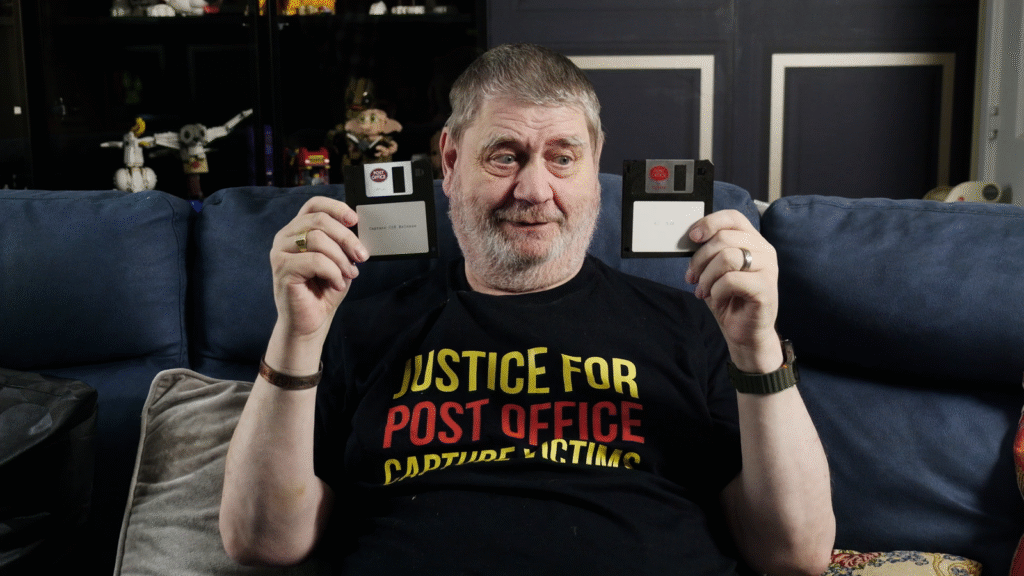Victims of the Post Office Capture scandal say they are being treated as second-class citizens – accusing the government of running a “two-tier” compensation system.
It comes as the Department for Business and Trade announced the launch of the first-ever redress scheme for those wronged after faulty software created false accounting shortfalls in the 1990s.
Capture was used between 1992 and 1999 in up to 2,500 Post Office branches, with many sub postmasters making up cash losses themselves.
A government-commissioned report last year found it was likely the software caused accounting errors.
The Capture Redress Scheme will provide payments of up to £300,000, and more in “exceptional” cases, to former postmasters who suffered financial losses.
Steve Marston, who was convicted in 1998 of stealing from his branch and is not yet eligible to apply to the scheme, said other victims were feeling “frustrated” with it.
“I want to know, what do they consider exceptional circumstances?” he said, “because I want it to see it in black and white what they consider as exceptional circumstances rather than just a vague statement.”
He said that victims felt like “second-class” citizens, describing the Horizon schemes and the new Capture scheme as “two-tier” systems.
“[It’s] one law for the Horizon victims, and a totally different law for us Capture victims and that’s not really fair.
“One of the main bones of contention is the fact that with Horizon there’s a right of appeal against decisions, and you’ve got multiple rights to appeal.
“Whereas with the Capture appeal process, there’s only a one-shot chance, so basically, it’s a second-class system.”
The scheme will be tested for the first 150 claimants before a full roll-out.
Chris Roberts, whose mother Liz was jailed in 1999 for theft, is one of them and said victims were concerned about the “glacial pace” of government.
He is able to apply to the redress scheme on behalf of his father, who was a postmaster alongside his mother, who oversaw accounts.
Both Liz and Bill Roberts have passed away.
“I’d hate us to get to the point where, you know, this scheme’s come out and we go through these 150 cases and then it’s further developed … and half the people it would apply to are gone,” Chris said.
“We will lose people before they can see justice, and I think that’s a terrible tragedy.”
Under the Capture scheme, eligible claimants will receive an immediate interim payment of £10,000.
An independent panel will then assess final awards through a banding model ranging from £10,000 to £300,000, with higher payments in exceptional circumstances.
The Post Office Minister Blair McDougall, speaking exclusively to Sky News, said he understood why victims have “low levels of trust in the state”.
He said: “They’ve been treated appallingly by the state, but what we’ve done with this scheme is to try to learn some of those lessons from previous compensation schemes for postmasters that didn’t work.
“So we’re collecting more evidence from the beginning to try to speed things up.
“We’re trying to give sub postmasters the benefit of the doubt throughout this. And I hope we will see that this scheme treats them with a bit more dignity and a bit more urgency.”
He also said that funds overall for the Capture scandal were “uncapped”, with “no ceiling” on compensation.
Mr McDougall also said that the government was working “as fast as we possibly can, and that’s because people have waited so long”.
Read more:
At least eight Capture convictions investigated
Major milestone in Post Office scandal
When asked if he would personally guarantee speedy redress, he replied: “Absolutely – that’s what we are doing today, to make sure that we have a scheme that gets people’s redress as quickly as possible.
“But it’s challenging, because we’re dealing with cases where there’s not a lot of evidence. So much time has passed.
“So we tried to design a scheme to get postmasters the benefit of the doubt and to try to be as fair as possible.”
He said within the scheme there was the “opportunity” for victims to make a “wider case of the impact on their lives – and if the independent panel feels that there is a compelling case, they can go beyond that £300,000”.



